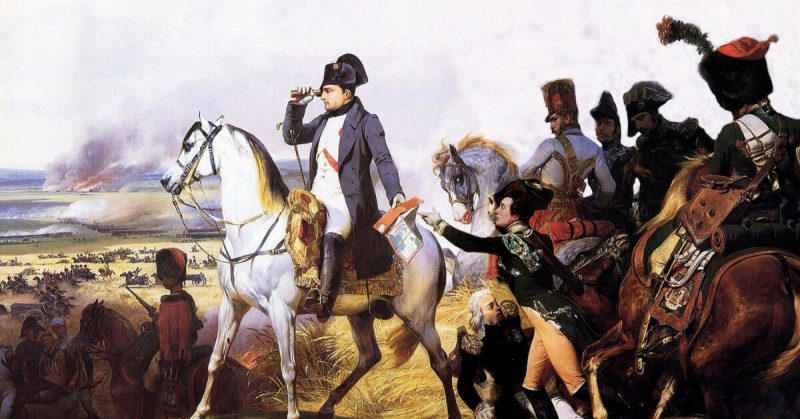Napoleon Bonaparte was one of the most successful generals in history. Despite most of Europe opposing him, he expanded the French empire from the Atlantic coast of Portugal to the forests of Eastern Europe.
Why did it take seven coalitions and years of war to curb this one man?
Learning from the Best
Napoleon was a great student of the military commanders from history. Before his time in military college, he had studied the exploits of men such as Alexander the Great, Julius Caesar, and Oliver Cromwell. Dissecting their words and analyzing their achievements, he developed a thorough understanding of the timeless arts of tactics, strategy, and diplomatic maneuver. Not just a skilled general; he was also an adept politician.
A Military Innovator
Napoleon may have learned from history, but he was always looking to the future. He did not allow himself to be trapped by the tactics of the past. Instead, he took what could be learned from his predecessors and contemporaries, then built upon it.
His background as an artillery commander led to the skilled use of French guns. He concentrated their fire and shifted them around the battlefield in ways that maximized their impact. His maneuvers and deployment of his troops also went beyond what his opponents expected or could achieve.
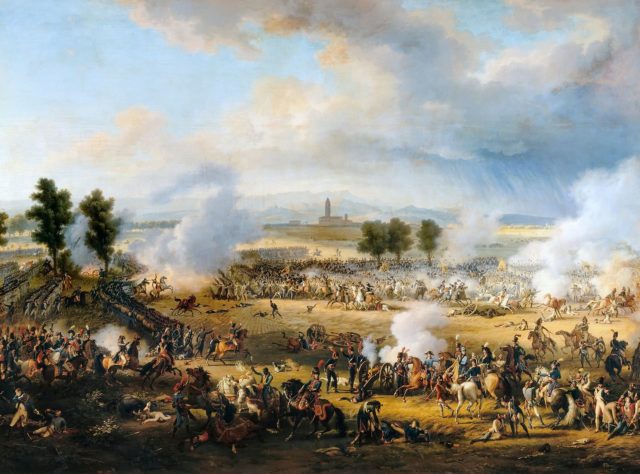
A Flexible Thinker
In his early days, Napoleon was mentally agile and tactically flexible. He maneuvered swiftly around the land, taking opponents by surprise and giving them no time to recover. Especially in Italy, his campaigns were built around decisive, unexpected movement.
A Nation Under Arms
The upheavals of the French revolution led to a nation that could field armies on a scale never previously achieved. One reason for this was the introduction of conscription for the first time in the modern world. Any man in France could be called upon to fight.
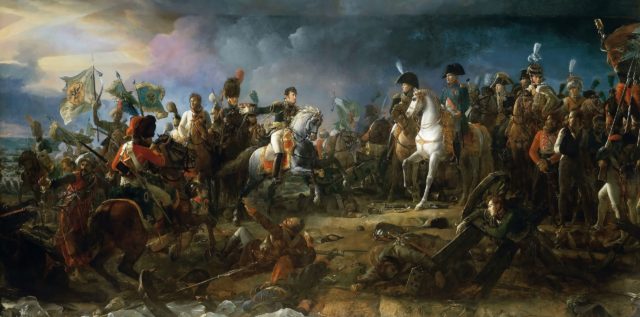
However, nothing could have been achieved if it were not for the nation’s fighting spirit. France was under attack, and there was a desire by foreign states to reintroduce the French monarchy by force. The revolution had polarized opinions and stirred deep passions. Much of that passion was turned outward. People were not just obliged to fight; they were eager to do so.
It was especially true for veterans of Napoleon’s campaigns. His charisma, care for his men, and success in the field ensured their loyalty. This was reflected in the way thousands rallied to him on his return during the Hundred Days.
Exporting the Revolution
The French Revolution was not just a coup d’etat. It brought genuine reforms. These empowered the middle classes and advantaged people further down the social scale. Napoleon took those reforms with him as he marched across Europe.
The countries Napoleon invaded never gained as much from the revolution as his own people. They were now satellites of France, and that was disempowering. However, within those nations reform created opportunities for men who had previously lacked them. Many were willing to serve under the French as political leaders, administrators, or soldiers.
When Napoleon invaded Russia in 1812, he did so at the head of an army drawn from across the continent.
Fractured Opposition
Napoleon’s international opponents were not a unified group. Every nation had its own interests to look out for and its own rivalries to consider. Self-interest sometimes stopped them from cooperating.
Russia, one of the greatest powers on the continent, was seldom inclined to help the others. At times, the Czar sought to divide Europe between French and Russian zones of power.
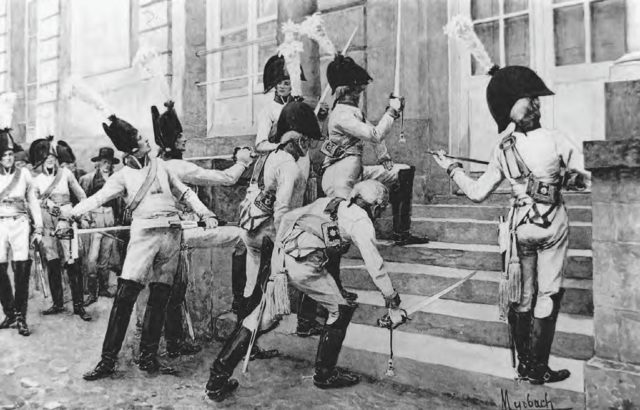
Some conflicts of interest came about because of war. The British sank the Danish Fleet at Copenhagen, to protect themselves from French use of Danish ships. The damage they did to the Danish Navy and the city’s civilian population made it hard for the Danes to look at Britain with favorable eyes.
Napoleon made use of these divisions and the self-interest that lay behind them. Several coalitions fell apart as he defeated and then negotiated peace with one nation at a time.
The Marshals
Napoleon was aided in his campaigns by the marshals of France. These senior generals formed a military elite made up of skilled men from a variety of backgrounds.
As important as the marshals was Napoleon’s willingness to trust them. Although he preferred to manage things directly, he could not be everywhere at once. By giving freedom of action to his generals, he increased his tactical and strategic flexibility. Several separate corps of troops could march out on a campaign, each led by a marshal. Their size let them move relatively quickly while remaining close enough together to support each other when combat came.
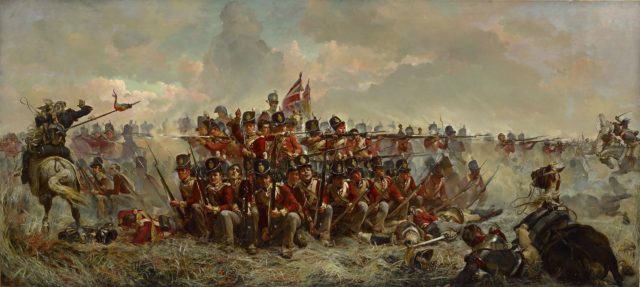
Short Sharp Wars
Napoleon was at his most successful when he could use his favorite form of campaign – the short, sharp knockout blow. He tried to engage swiftly with enemy armies while facing them on terms that favored the French. By quickly knocking out an enemy army he could force a nation to the negotiating table or even conquer it without committing himself and his troops to lengthy periods on the field.
Spain was an example of what happened when this failed. There, resistance to the French led to a protracted campaign that gave rise to the term “guerrilla warfare.” Rather than quickly bringing the Spanish to heel with a short, sharp shock, the French became involved in a prolonged holding action. Their forces were bogged down, worn out, and eventually pushed back.
Napoleon remained triumphant as long as he could fight on his terms – swiftly, flexibly, moving on from one campaign to the next. His marshals and massed troops gave him great fighting power. Over-ambition eventually led to his downfall, but it took seven coalitions of opponents to beat him.
Sources:
Geoffrey Ellis (1991), The Napoleonic Empire.
Alan Forrest (2011), Napoleon.
Robert Harvey (2006), The War of Wars: The Epic Struggle Between Britain and France: 1789-1815.
Matthew D. Zarzeczny (2013), Meteors that Enlighten the Earth: Napoleon and the Cult of Great Men.
